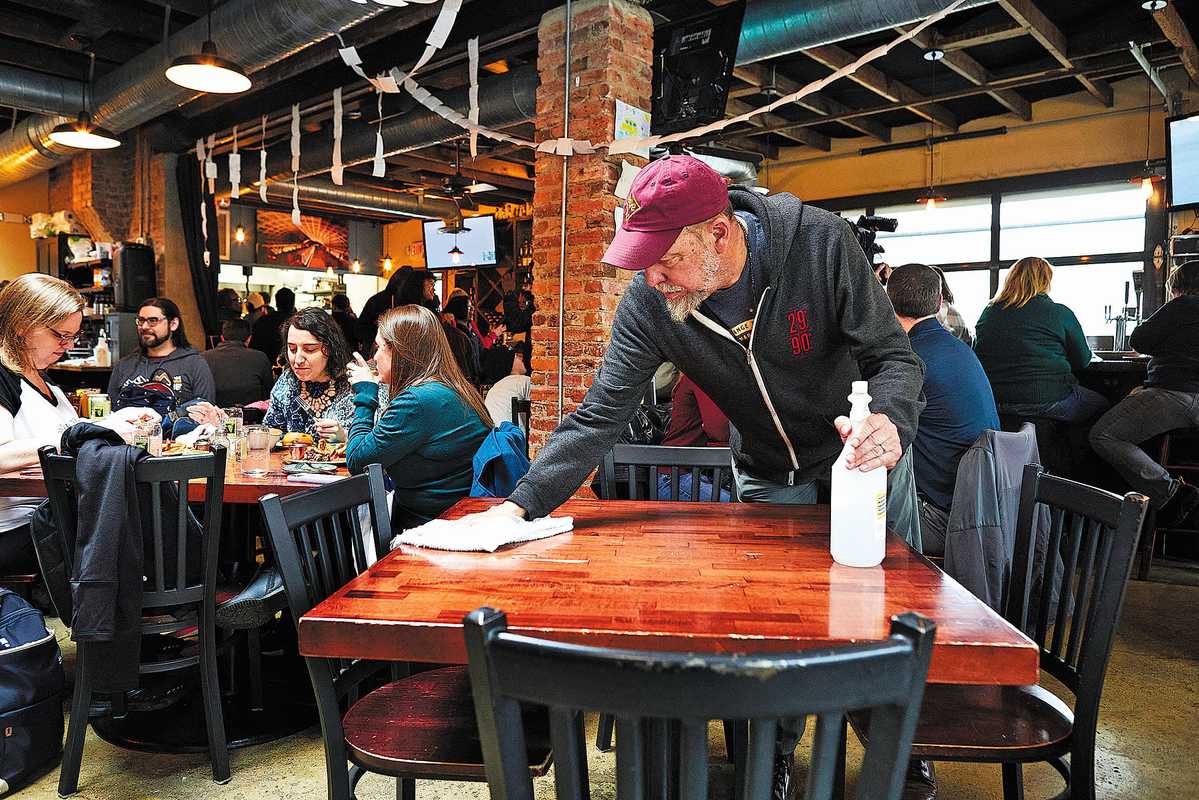
The United States' latest tariff policy is a major shock to the economy, a US Federal Reserve official said on Monday, predicting that the risk of recession exceeds the inflation risk, echoing recent warnings by economists.
Speaking at the Certified Financial Analysts Society of St. Louis, Fed Governor Christopher Waller said the new tariff policy is one of the biggest shocks to affect the economy in many decades, which will likely cause the growth to "slow to a crawl" and bring the unemployment rate near 5 percent next year.
Over the past few weeks, the administration of President Donald Trump has unveiled a series of sweeping tariff moves that have roiled global markets, imposing additional tariffs of at least 10 percent on all foreign-made goods.
ALSO READ: ‘No guarantees’ of no recession under Trump, says US treasury secretary
It then paused those duties for dozens of countries for 90 days but ratcheted up levies on China to 125 percent, which was followed by a temporary exemption for smartphones and laptops from planned duties on Chinese imports on Friday.
"With large tariff increases, I would expect the US economy to slow significantly later this year and this slower pace to continue into next year," Waller said, adding that higher prices from tariffs would reduce spending, and uncertainty about the pace of spending would deter business investment.
The Budget Lab at Yale, a nonpartisan policy research center, estimated on Thursday that all tariffs enacted this year and foreign retaliation could cut US GDP by about 1.1 percent, while increasing the overall price level by 2.9 percent in the short term.
The International Monetary Fund predicted in January that the US economy would grow by 2.7 percent this year.
READ MORE: Toxic tariff policy heralds US recession and greater uncertainty for world trade
"With a rapidly slowing economy, even if inflation is running well above 2 percent, I expect the risk of recession would outweigh the risk of escalating inflation, especially if the effects of tariffs in raising inflation are expected to be short-lived," Waller said.
If the slowdown is significant and even threatens a recession, the Fed may cut interest rates sooner, and "to a greater extent than I had previously thought", he said.
Fits and starts
With US tariff policies regularly changing and tariff rollouts full of fits and starts, economists have cautioned that tariffs, if handled recklessly, could tip an already fragile economy into recession — or something much worse.
A recession is generally defined as a significant decline in economic activity that spreads across the economy and lasts more than a few months.
"A recession is two negative quarters of GDP and whether it goes slightly there," Larry Summers, former US treasury secretary, said in a podcast released on Monday.
"We always have those things. We have something that's much more profound. We have a breaking down of the monetary order."
He said "markets have freaked out" following "the most radical trade policies and probably the most radical, rapid change in economic policies" that the US has announced since World War II.
READ MORE: US stocks slump as recession risks weigh on investors
Summers estimated a better-than-even chance-"six in 10 or better"-that the US enters a recession this year. He said he expected that unemployment could rise by 2 percentage points and GDP could shrink by more than $1 trillion.
Unlike past crises triggered by external shocks, the current turmoil is "self-inflicted", meaning the instability stems from deliberate policy choices, he said.
"We do things on a Wednesday that we said on Tuesday that we would never do. When you're dealing with someone who shows themselves not to be able to make and keep promises, you operate much more carefully and gingerly, and that's how everybody's going to be operating with respect to the United States."
The US is behaving more like an emerging market than a global financial anchor, he said. "That's a pretty profound thing," he said. "It takes decades to build up credibility, but it can be lost in a matter of days or weeks."
Ray Dalio, founder of US hedge fund Bridgewater Associates, also warned that the US economy is teetering on the edge of a recession.
At the heart of Dalio's concern is how tariffs, if applied in a chaotic and unpredictable manner, can act like "throwing rocks into the production system", disrupting global supply chains and raising costs across the board.
"Those impacts … would be enormous in terms of the efficiency of the whole world, great cost," he said on NBC's Meet the Press on Sunday.


